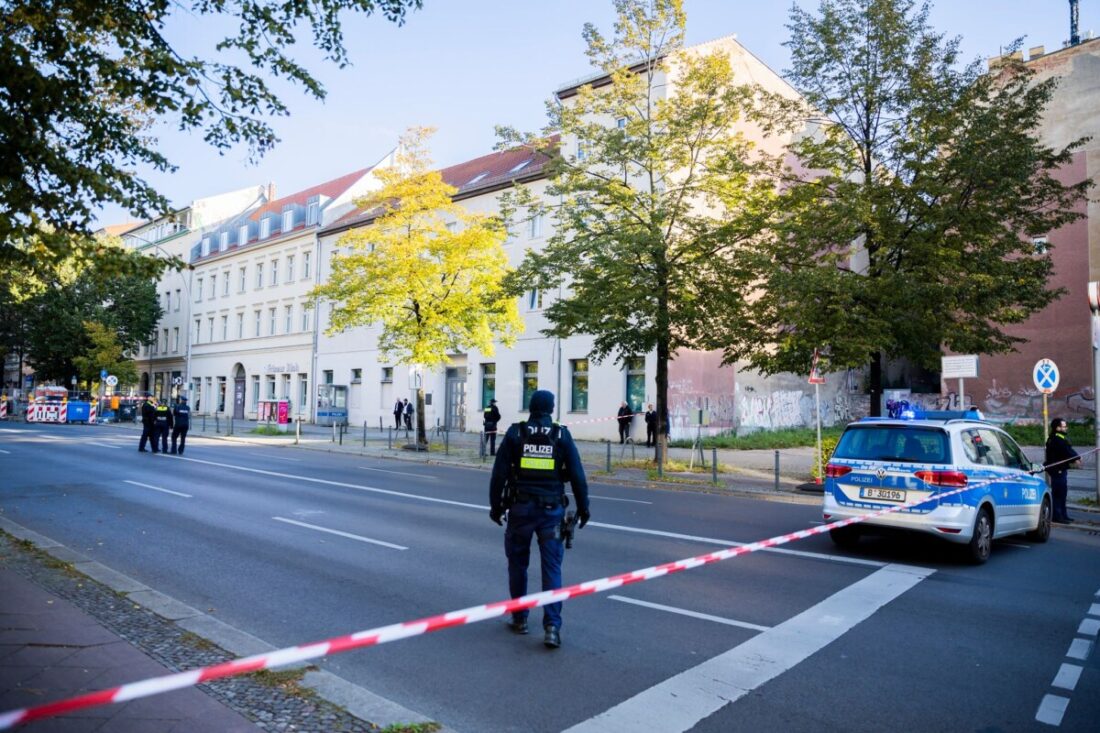It is virtually axiomatic.
Whenever Israel is engulfed in a major conflict with the Palestinians and a significant number of them are killed, there is invariably an upsurge of antisemitism outside the region.
To cite but two examples, Israel’s invasion of Lebanon in 1982 and the outbreak of the second Palestinian uprising in the West Bank and the Gaza Strip in 2000 aroused a wave of antisemitic vengeance from assault to vandalism.
And now, more than three weeks after the eruption of Israel’s fifth war with Hamas in 15 years, Jews around the world from Russia to the United States face flareups of antisemitism yet again.
These manifestations of anti-Jewish bigotry, the oldest and most persistent kind of hatred, have taken the form of hate speech, online intimidation, threatening telephone calls, random harassment, threats to Jewish institutions, attacks on synagogues, and pro-Palestinian demonstrations during which antisemitic epithets are heard.
Such incidents have left Jews and Jewish communities worried, if not shaken.
In what has been the most publicized incident to date, a Muslim mob in Russia chanting antisemitic slogans stormed the tarmac of Makhachkala airport in Dagestan on October 28 in search of Jewish passengers who had just arrived from Israel. (Tamerlan Tsarnaev, the Boston Marathon bomber, was radicalized in the city of Makhachkala).
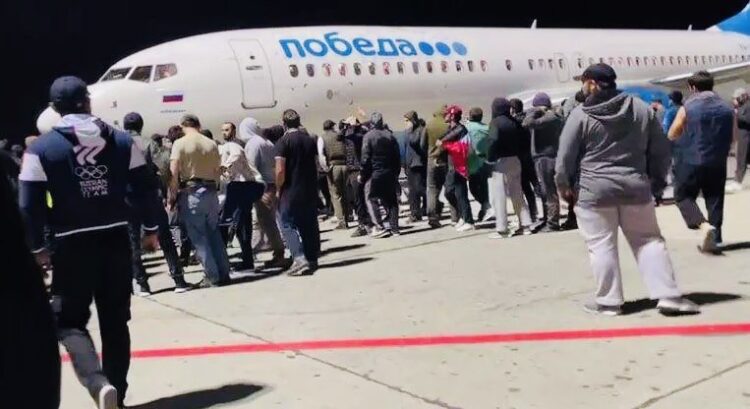
Waving Palestinian flags, breaking down doors and running amok through the terminal, the rioters posed a real and present danger to Jews in the plane, who remained safely aboard. The authorities intervened, arresting 83 hooligans.
This disturbing incident, which was almost reminiscent of late 19th century pogroms, was a jolting reminder that conflicts in the Middle East stir the deepest of passions.
On the same day that this event unfolded, the Flamingo Hotel in Khasavyurt, Dagestan, was attacked by a group of Muslim thugs searching for Jews. The following day, arsonists set alight the Jewish community center in Nalchik, leaving an inscription on a wall: “Death to the Jews.” And on the Telegram platform, videos warned Jews to leave Russia.
The Russian government conveniently pointed a finger of blame at outside agitators.
“The events in Makhachkala were inspired, including through social networks, not least from the territory of Ukraine, by the hands of agents of Western intelligence services,” said President Vladimir Putin glibly, failing to present even a shred of evidence.
“Yesterday’s events at Makhachkala airport are, to a large extent, the result of external interference,” claimed Dmitry Peskov, Putin’s spokesman. “Against the backdrop of TV footage showing the horrors of what is happening in the Gaza Strip — the deaths of people, children, old people — it is very easy for enemies to take advantage of and provoke the situation.”
In the United States, the Anti-Defamation League has reported a a nearly 400 percent increase in antisemitic incidents since Hamas’ October 7 surprise attack on Israel. Of 312 incidents between October 7-23, about 190 were linked to the Israel-Hamas war. These incidents have taken place in cities ranging from New York City to Miami Beach.
Christoper Wray, the director of the FBI, expressed concern on October 31 that “violent extremists, individuals or small groups, will draw inspiration from the events of the Middle East and carry out attacks against Americans going about their daily lives.”
Wray said that “homegrown violent extremists inspired by a foreign terrorist organization” or “domestic violent extremists” could well target Jewish or Muslim communities.
Deborah Lipstadt, the U.S. State Department’s special envoy to combat and monitor antisemitism, said recently that the U.S. government is “deeply concerned” by the “dramatic increase” in global antisemitism.
“Governments, law enforcement, and community groups in Europe, Latin America, Australia, South Africa, North America, Russia, and elsewhere have reported a sharp increase in antisemitic incidents, rhetoric, and incitement in the past three weeks,” she said. “Violent incidents throughout the world in October have included harassment of and attacks on Jewish individuals, and defacement of and attacks on Jewish sites.”
On American university campuses, including Harvard and Cornell, the majority of Jews have been alarmed by the phenomenon of student associations and professors hailing Hamas’ massacre as an heroic act of post-colonial “resistance.”
Last week, the White House decried the “extremely disturbing pattern of antisemitic messages” being conveyed on university campuses. “Delegitimizing the State of Israel while praising the Hamas terrorist murderers who burned innocent people alive, or targeting Jewish students, is the definition of unacceptable, and the definition of antisemitism.”
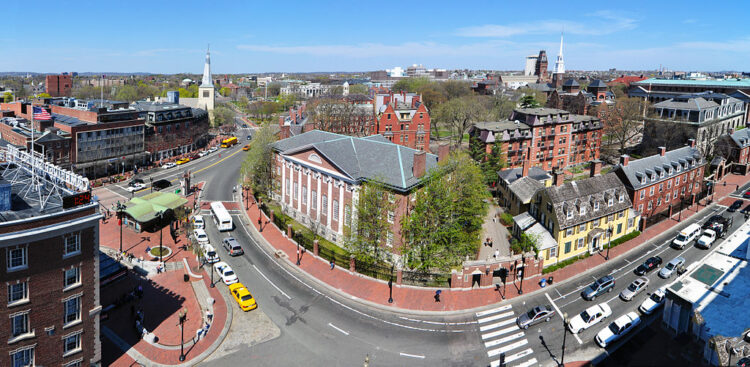
Facing criticism from donors, Harvard University’s president, Claudine Gay, recently assembled a group of advisers to combat antisemitism on campus. This occurred after some Jewish students complained of antisemitism following the distribution of a letter, signed by more than 30 student organizations, blaming Israel for Hamas’ attack.
“As we grapple with this resurgence of antisemitism, I want to make one thing absolutely clear: antisemitism has no place at Harvard. For years, this university has done too little to confront its continuing presence. No longer.”
Over the weekend, anonymous antisemitic posts on a website threatened to “shoot up” Cornell University’s kosher dining hall and kill and rape Jewish students. Police were called to the dining hall, and Hillel warned students to stay away from its building.
At Cornell, reports have surfaced that some Jewish students living in dorms have been afraid to leave their rooms, and that crude messages on social media have been sent out calling for physical violence against Jews on campus.
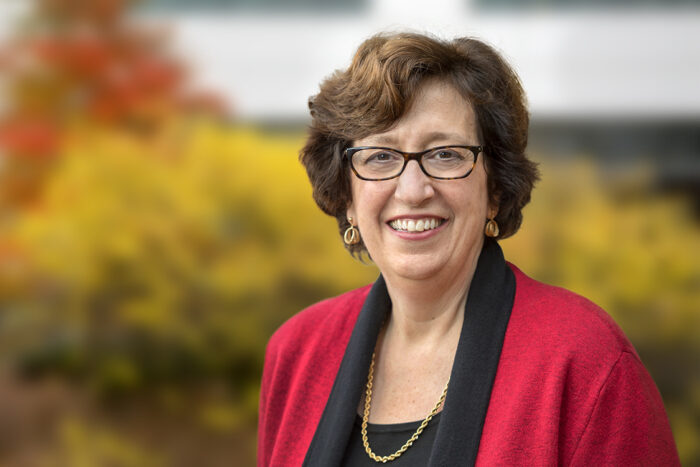
Cornell’s president, Martha Pollack, has issued an ultimatum. “We will not tolerate antisemitism at Cornell,” she said in a statement posted on X. “Threats of violence are absolutely intolerable. Our immediate focus is on keeping the community safe.”
Canada has not been immune to the scourge of antisemitsim. Police in Toronto report a 132 per cent increase in hate-related calls. Since October 7, 14 hate crimes, encompassing mischief, uttering death threats and criminal harassment, have been documented, 12 of which were antisemitic and two of which were Islamophobic.
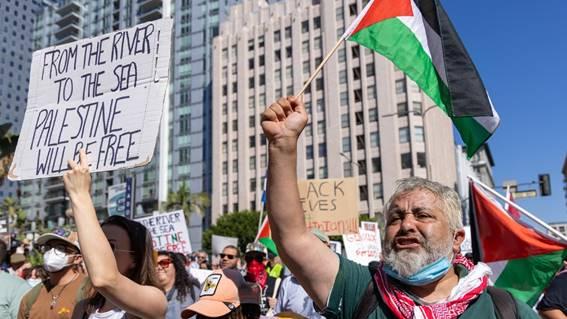
Last week, Palestinian protesters demonstrated in front of the Cafe Landwer — a chain of European-style cafes in the city owned by Israeli Jews — and urged its supporters to boycott it. Olivia Chow, Toronto’s mayor, lambasted them, saying that “targeting a business in this way is wrong.”

Anthony Housefather, a Montreal Liberal member of Parliament, said that boycotts of Jewish-owned businesses are “unforgivable,” and added, “This is not an expression of Canadian values. It is pure hate.”
Melissa Lantsman, a deputy leader of the federal Conservative party, blasted the protest as “a despicable act of antisemitism.”
In Germany, where the Holocaust was conceived and planned, the Kahal Adass Jisroel synagogue in the Mitte district of Berlin was attacked with Molotov cocktails on October 18. A suspect has yet to be arrested.
The Central Council of Jews in Germany issued a somber statement: “We are all shocked by this terrorist attack … Hamas’ ideology of extermination against everything Jewish is also having an effect in Germany.”
Strongly condemning it, German Chancellor Olaf Scholz said, “We will never accept … attacks carried out against Jewish institutions … We stand united for the protection of Jews.”
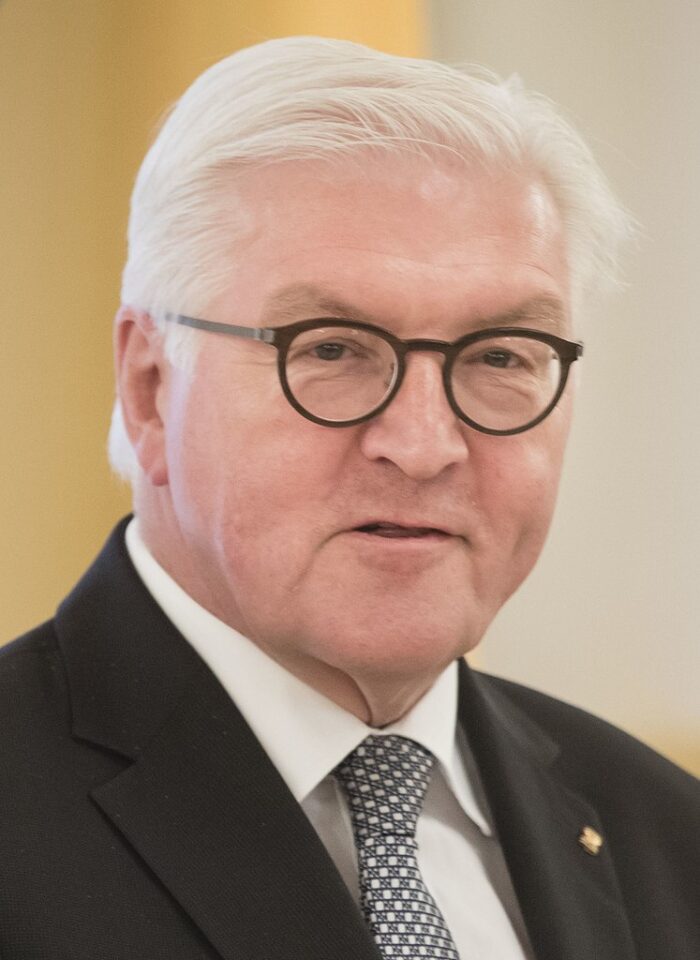
At a pro-Israel gathering in front of Berlin’s Brandenburg Gate, German President Frank-Walter Steinmeier was just as emphatic. “It is unbearable that Jews are living in fear again, and in our country of all places. Every single attack on Jews, on Jewish institutions, is a disgrace for Germany. Every single attack fills me with shame and anger.”
A week later, Germany’s interior minister, Nancy Faeser, tabled a law in Parliament that would block citizenship requests from persons who have committed antisemitic acts.
On October 18, vandals set fire to a historic synagogue in the Tunisian city of Al Hammah, reducing it to rubble.
This happened eleven days after Hamas terrorists murdered 1,400 Israelis and foreigners in a murderous rampage in southern Israel and just hours after Hamas falsely blamed Israel for an explosion in a Gaza hospital parking lot that killed hundreds of Palestinians sheltering there.
Earlier this year, an Arab terrorist attacked a synagogue on the island of Djerba, killing five people.
Antisemitic offences have dramatically risen in London, according to the Metropolitan Police Service. London’s Muslim mayor, Sadiq Khan, is keenly aware that anti-Jewish prejudice, and Islamophobia, are on the uptick. As he put it on the X platform, “I know how the conflict in Gaza and Israel is having a direct impact on London and Londoners.”
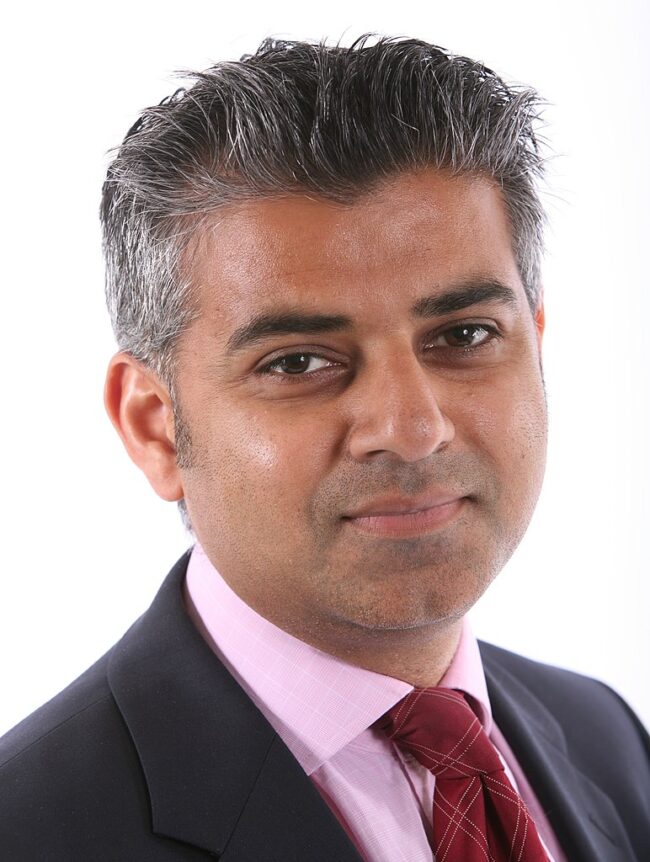
In France, nearly 400 antisemitic acts have taken place. Security around synagogues and Jewish schools and institutions has been upgraded. And France has banned pro-Palestinian demonstrations, which have proliferated around the globe.
Some Palestinian demonstrations have taken on antisemitic overtones. In the Australian city of Sydney, Palestinian protesters outside an opera house reportedly shouted, “Gas the Jews.” Police are investigating this demonstration.
On Telegram, an online platform used by neo-Nazis and Islamic State sympathizers and supporters, antisemitic threats have skyrocketed by nearly 500 percent.
It’s clear that the Israel-Hamas war has brought out long-simmering hatred, whether in Toronto, London, Berlin or Sydney.
